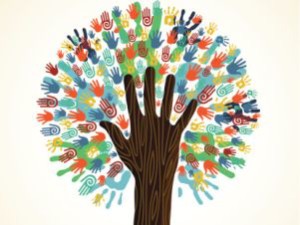

NGOs Sociology
NGOs (Non-Governmental Organizations) are relevant to the field of sociology in several ways.
Social Change and Advocacy:
NGOs often focus on promoting social change and advocating for specific causes and issues. Sociologists study social change, social movements, and advocacy strategies, and NGOs provide real-world examples of how social change is facilitated through collective action, advocacy campaigns, and grassroots mobilization.
Civil Society:
NGOs play a significant role in civil society, which refers to the space between the state and the individual where voluntary associations and organizations operate. Sociologists examine the dynamics and functions of civil society, including the role of NGOs in addressing social issues, providing services, and representing the interests of specific groups or communities. NGOs in Civil Society
Social Development and Welfare:
NGOs often work in the areas of social development, poverty alleviation, healthcare, education, human rights, and other social welfare domains. Sociologists study the factors contributing to social inequality, social problems, and the impact of interventions and policies on social well-being. NGOs sociology provide insights into practical approaches and initiatives aimed at addressing these issues.
Globalization and Transnational Networks:
NGOs frequently operate across national borders and engage in transnational networks. Sociologists explore the implications of globalization, transnationalism, and global social movements. NGOs offer examples of how global networks are formed, how they collaborate on issues, and how they influence national and international policies. NGOs in Civil Society
Organizational Studies:
NGOs provide valuable case studies for examining organizational dynamics, governance structures, decision-making processes, and the management of volunteers and resources. Sociologists study organizations, including NGOs, to understand how they function, how they achieve their objectives, and how they navigate challenges and conflicts.
To visit: https://services.india.gov.in
It’s important to note that the field of sociology encompasses a wide range of topics, and the study of NGOs is just one aspect of sociological research. Sociologists examine various social phenomena, including institutions, social interactions, social structures, inequality, culture, and many other areas of human society.
FAQs
1.What role do NGOs play in society?
- NGOs play a vital role in advocating for social change, providing services, raising awareness about issues, and influencing policy decisions to improve the lives of individuals and communities.
3. How do NGOs differ from government organizations?
- NGOs are independent and rely on donations, grants, and volunteers, while government organizations are funded and operated by the state, aiming to implement public policies and services.
4. What are the main functions of NGOs?
Ans: NGOs perform various functions, including:
- Providing services (healthcare, education, etc.)
- Advocacy (promoting social issues)
- Research and policy development
- Mobilizing community participation
5. What types of NGOs exist?
Ans: NGOs can be categorized into:
- Operational NGOs: Focus on providing direct services or support.
- Advocacy NGOs: Aim to influence policies and raise awareness about specific issues.
6. How do NGOs impact community development?
- NGOs empower communities by promoting participation, providing resources and training, and facilitating access to essential services, ultimately improving quality of life.
7. What challenges do NGOs face?
NGOs often encounter challenges such as:
- Funding limitations
- Bureaucratic hurdles
- Political resistance
- Measuring impact and effectiveness
8. How do NGOs contribute to social change?
- NGOs advocate for marginalized groups, raise awareness about social injustices, and lobby for changes in policies and practices, driving societal transformation.
9. What is the relationship between NGOs and globalization?
- Globalization allows NGOs to collaborate internationally, share resources and knowledge, and address global issues like climate change, human rights, and poverty on a larger scale.
10. Why is understanding the sociology of NGOs important?
- Understanding the sociology of NGOs helps us grasp their role in social dynamics, community engagement, and the interplay between social movements and institutional change, fostering better collaboration and effectiveness.
For further details visit: https://vibrantfinserv.com/service-detail-6.php
Contact: 8130555124, 8130045124
Whatsapp: https://wa.me/918130555124
Mail ID: operations@vibrantfinserv.com
Web Link: https://vibrantfinserv.com
FB Link: https://fb.me/vibrantfinserv
Insta Link: https://www.instagram.com/vibrantfinserv2/
Twitter: https://twitter.com/VibrantFinserv
Linkedin: https://www.linkedin.com/in/vibrant-finserv-62566a259/